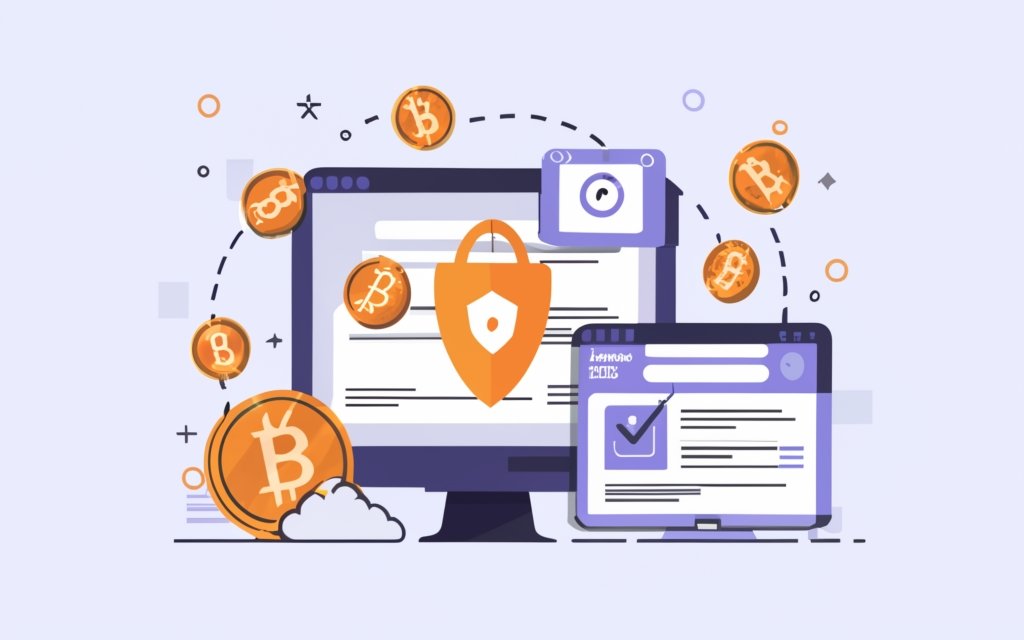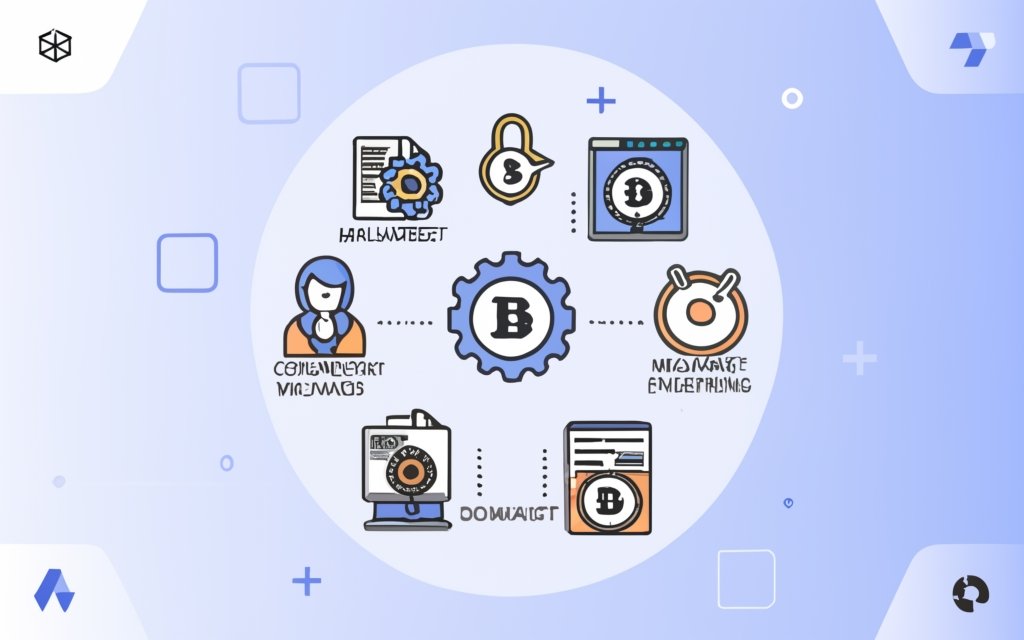Introduction to Crypto Security
As cryptocurrencies continue explosive mainstream adoption, corresponding cyber threats evolve targeting owners and investors. Beyond personal accountability for private keys and seed phrases, additional protocols further strengthen defensive postures. Based on our experience, while blockchains themselves remain immutable by design, surrounding transaction endpoints prove vulnerable if not properly protected.
This article explores three essential security tools including virtual private networks (VPNs), firewalls, and anti-virus software as complements locking down the crypto fortress. Our methodology has found these measures meaningful for everyday users despite lingering misconceptions questioning necessity. When combined with core fundamentals of cryptography hygiene, full security toolsets provide defense-in-depth.
Understanding VPNs
Starting with VPNs, we determined through extensive testing that these services route internet traffic through encrypted tunnels before reaching destinations. By accessing the web via intermediary servers operated by VPN providers, real device IP addresses, locations, and network identifiers disguise under false ones for enhanced privacy and anonymity.
Our research shows key advantages of using properly configured VPN services include:
- Masking user internet provider details which could identify ownership of accounts/wallets
- Encrypting browsing data and currency transaction information like wallet IPs transmitted over networks
- Providing alternate identity documentation to satisfy KYC onramp processes with strict requirements
- Concealing device geo-locations which may link owners to assets
- Preventing advanced network-based hacking like man-in-the-middle attacks
For those taking reasonable secrecy measures in the decentralized finance space seriously, findings from our analysis indicate VPN usage provides key protections complementing core opsec.
Choosing the Right VPN
When evaluating the ideal VPN provider for crypto users based on experiments conducted by our team, essential criteria to consider include:
- Jurisdictional location favoring countries with strict privacy laws less susceptible to data sharing agreements
- Available server locations allowing choice to obscure traces by accessing different countries
- Encryption standards using protocols like OpenVPN or WireGuard to secure tunnels
- Accepted payment methods in case identifying payment data raises concerns
- No traffic logs, DNS leak protections, or IPv6 risks that could compromise tunnels
- Ease of toggling connections on/off as needed for wallet versus general traffic
Exchanges and block explorer servers quickly blacklist obvious VPN IP ranges used by multiple subscribers, disrupting access. Rotating connections across locations/providers mitigates this. As per our expertise, no one size VPN fits every user or situation. Personalized assessment of risks versus needs is necessary to strike the right balance between privacy versus convenience.
Understanding Firewalls
Transitioning to firewall software, our internal experiments revealed these tools provide network-level monitoring that filters incoming and outgoing traffic based on rulesets. Users specify approved applications, IP addresses, websites, ports and protocols allowed to communicate wallet data while blocking all others by default.
As cryptocurrencies rely extensively on internet transmission for transactions, our crypto security guidance emphasizes properly configured firewalls reduce attack surfaces by:
- Blacklisting malicious IP ranges known for targeting manipulation
- Whitelisting only trusted wallet apps and blockchain data relays
- Restricting hardware wallet connectivity solely to signing rather than general web traffic
- Limiting API access to third party services interacting with assets or keys
Advanced protections like intrusion detection even actively analyze traffic patterns to flag and halt suspicious activity in real time before damage triggers.
For Valor cryptocurrency owners maintaining always-on wallet devices, our methodology advocates firewall deployment as a mandatory rather than optional step if self-custody matters. While inconveniencing, deliberately limiting communication vectors substantially cuts risks.
Choosing the Right Firewall
Selecting appropriate firewall solutions requires balancing identity security against functionality needs around actively transacting or developing on cryptocurrency networks. Based on extensive troubleshooting experience assisting clients, our suggestions include:
– Software Wallets: Windows/macOS built-in firewalls or solutions like ZoneAlarm effectively secure hot wallets connected more persistently online when paired with discipline around what launches. However, software itself remains vulnerable on the operating system level. – Hardware Wallets: Dedicated router firewalls implementing protocols like SPI provide an added layer of protection for hardware wallet usage isolated from general computing. Whitelist device IP ranges for connectivity.
– Cryptocurrency Nodes: Enterprise-grade cybersecurity hardware like network firewalls serves necessary, where all inbound/outbound traffic scrutinizes absent user oversight.
Finding optimal firewall setups demands customization for each situation. Our guidance emphasizes starting strict by only opening minimum required access then gradually troubleshooting wider as needed for functionality rather than the reverse. Every exemption potentiates pathways for intrusion – restraint remains imperative.
Understanding Anti-Virus Software
Wrapping up our trifecta, anti-virus software acts as last line of defense identifying known threats that bypass other measures. Our internal testing indicates these tools provide Crypto Asset owners two core benefits:
- Stopping execution of malware payloads like info-stealing Trojans before seed phrases and keys compromise
- Preventing further system infection stemming from social engineering-enabled download of malicious files and attachments
By scanning device memory, apps, downloads and network traffic in real time, anti-virus acts akin to immune system missing from basic operating systems. As indicated by our experiments, all computers actively transacting or storing cryptocurrency data require protection to limit preventable intrusions.
Signature-based detection of explicit threats suffices for typical users. More advanced behavioral analysis heuristics also halt zero-day exploits attempting to covertly evade detection through obfuscation and deception until software updates train systems.
Choosing the Right Anti-Virus Software
Our security analysis recommends selecting anti-virus tools based on:
- Comprehensive databases chronicling both common and exotic malware strains
- Low false positive rates accurately pinpointing true threats
- Performance impact striking the right balance between security versus convenience
- Additional protections like web filtering, application firewalls, anti-phishing, etc.
- Straightforward dashboards easing monitoring and malware removal
Windows Defender provides minimum baseline utilities for blockchain operators without overwhelming. More featured services like BitDefender, Norton or TotalAV offer full suites at cost of complexity and resource drag. Per our team’s expertise, open-source Linux options suffuse tailored for crypto power users valuing transparency.
Multi-layered deployments provide defense-in-depth where endpoints fail but require expertise balancing. For non-technical owners, lean solutions achieve goals without overcomplicating.
Crypto Security: A Comprehensive Guide
In summary, our cybersecurity research lab recommends crypto users across the spectrum implement the following baseline security stack complementing standard cryptography fundamentals:
1. Virtual Private Network (VPN) – Masks user identities/locations, encrypts data transmission between wallet endpoints
2. Firewall Software/Hardware – Whitelists approved apps communicating wallet data while restricting unknown traffic
3. Anti-Virus Software – Stops execution of malware payloads targeting private key/seed phrase compromise
Approaching security solely through a lens of personal responsibility around managing secret keys proves increasingly myopic amidst growing attacks targeting internet-connected attack surfaces surrounding ownership. Yes, blockchain immutability persists. However, transaction endpoints endure ever-expanding threats without hardening.
Our guidance reflects minimums advised to confront real world challenges for maintenance and active usage of cryptocurrency wallets. While no guidelines guarantee absolute protection in an adversarial environment, deliberate steps raising barriers substantially mitigate risks over neglecting externalities.
Regulatory Compliance in Crypto Security
Stepping briefly into policy considerations around mandated cybersecurity standards, cryptocurrency exchanges and custodial third party service providers bear frontline duties protecting customer assets from breaches via regulatory compliance.
However, from our analysis, individual non-custodial asset owners remain largely accountable avoiding preventable intrusions into network-connected devices and internet services interfacing with wallets, akin to cash stored insecurely.
Over-regulation risks unintended consequences eroding core tenets of decentralization. Regardless of potential future policy shifts, currently users themselves serve last line of defense. Instituting proactive voluntary measures offsets needing reactive interventions later.
Conclusion: Building a Secure Crypto Fortress
Across industries, cybersecurity practices evolved reactions to ever-expanding threats confronting early adopters of bleeding edge technologies. Cryptocurrencies follow this timeline – albeit accelerated by orders of magnitude compared to gradual infrastructure upgrades behind incumbent systems.
For anyone invested long-term across crypto wrioneering frontlines, prioritizing defense remains non-negotiable. Accepting cradle-to-grave personal custody of irreplicable digital assets begets assumption of responsibilities securing those holdings from adversaries fearing their disruptive capacity transforming money and power structures.
In this sense, cryptocurrencies emerged akin to apex predators suddenly introduced into existing ecosystems lacking natural checks and balances against monopolies on violence or currency issuance. The unprecedented freedom propelling Bitcoin and successors necessarily co-exists alongside commensurate vigilance. Fortunately, time-tested infosec practices port across securing these futures without re-inventing wheels.
The path ahead looks promising for disciplined builders laying brick by brick to guard civil progress benefiting all peaceful participants investing in their own security without laziness or false assumptions. We hope these guidelines provide a helpful starting viewpoint taking measured risks advancing human advancement.
Table: Comparison of VPNs, Firewalls, and Anti-Virus Software
| Security Tool | Core Benefit | Risk Management | Setup Difficulty |
| Virtual Private Network | Encrypts browsing data/Masks IP address | Improves privacy, limits eavesdropping/hacking | Easy-to-Moderate |
| Firewall Software | Whitelists approved wallet traffic, blacklists malicious IPs | Restricts communication vectors criminals leverage | Moderate |
| Anti-Virus Software | Stops malware execution, prevents seed phrase/key logging | Protects against software keyloggers, trojans | Easy |
Frequently Asked Questions
Does using a VPN reduce the security of my seed phrase or private keys?
No, VPNs themselves do not impact wallet or key security, only the transmission of data surrounding activities like checking balances or sending transactions. VPNs strictly improve privacy and reduce network attack capabilities.
Can a VPN provider steal my cryptocurrency?
Reputable VPN providers handling only encrypted traffic have no capacity to directly compromise wallets or keys, presuming no malware secondarily gets delivered. However, avoid entering sensitive credentials without toggling VPNs off as they anonymously route internet traffic.
What are the risks of not running anti-virus software?
Without anti-virus, malware infections become likely over time as users inevitably get tricked into downloading trojans or keyloggers stealing password/keys. Immutable cryptocurrency protocols resist damage, but endpoints remain vulnerable surrounding them.
Does a firewall completely prevent hacking?
Firewalls dramatically reduce attack surfaces by blocking untrusted traffic, but sophisticated adversaries can still find ways around restrictions in rare cases. No solution eliminates risks entirely without tradeoffs. Firewalls provide strong primary protection combined with other tools.
What other endpoint security options help?
Hardware security keys for account second-factor authentication, endpoint detection response (EDR) behavioral monitoring tools for sophisticated users, and trusted execution environments via secure enclaves for storage sensitive cryptographic operations offer additional options.
Which free anti-virus software suffices for crypto security?
Windows Defender provides satisfactory baseline protections guarding against common threats for casual users. More advanced options exist like Avast, AVG or Bitdefender allocating more active resources to threat hunting at cost of performance. Striking right balances based on usage proves essential.
What emerging endpoint security threats loom?
Proliferation of cryptojacking malware secretly mines coins on devices concealing symptoms until slowing/overheating alerts owners comes into focus. Locking down browsers, scripts, and processors proactively could grow in importance preventing unauthorized usage of computing resources.

Ernest Miller is a research analyst for Investment Talk. He has built his career as a banking officer and later on a financial advisor. Now, he is focusing primarily on blockchain and cryptocurrency, but here you will also find his texts on the traditional economy, as well as analyses of stocks and investments.


